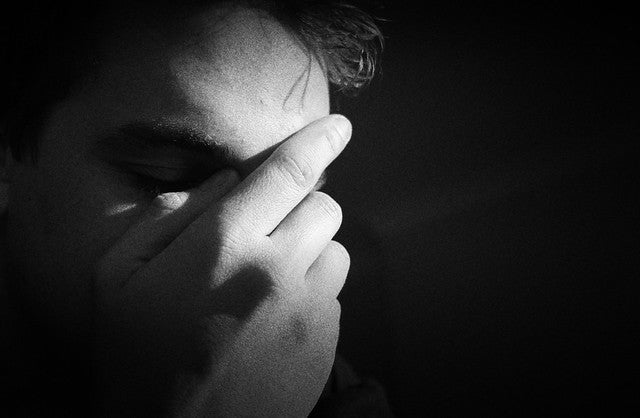By nearly any measure, 2020 was a historic year. While many continue to experience the fallout from a global pandemic, a reckoning over racial justice and continuing political strife, one side effect seems to be blows to Americans’ mental health.
According to a Mental Health America report, 19 percent of Americans are living with a mental health condition — an increase of 1.5 million people from the year prior. Mental Health America ranks states according to prevalence of mental illness and access to care, and Wisconsin is 24th in the nation. The organization also notes that nationally, 57 percent of adults with a mental illness receive no treatment.
Given the unprecedented stresses, UW Health psychologist Shilagh Mirgain says it’s important to check in on one’s own mental health. Speaking on WPR’s “Central Time,” Mirgain said that under normal circumstances, the winter season alone can be a tough time for many people who struggle with mental illness. And now, the pandemic has only compounded those challenges.
News with a little more humanity
WPR’s “Wisconsin Today” newsletter keeps you connected to the state you love without feeling overwhelmed. No paywall. No agenda. No corporate filter.
In the last year, Americans might have experienced financial stress related to the economic recession, anxiety over health and safety due to the COVID-19 pandemic, or worry over our nation’s political division. These factors could be compromising mental health, and Mirgain said assessing the challenges you’re facing is important.
“We don’t want to trivialize what we’re going through, but really recognizing and offering some space for our own experience. Certainly, there’ll always be people who are doing better or worse than us, but it can be really helpful to provide that kind of acknowledgment to ourselves,” she said.
She said the pandemic makes treatment or other traditional strategies for coping more challenging to employ.
“Whether it’s a mental health condition or a physical condition that was occurring prior to the pandemic, it can add extra complexity or layer. Some of the coping strategies that people use in treatment of a psychological condition or medical condition — many of those are not available or have not been available or limited, which can make it even more complex,” she said.
Besides thwarting some treatment ideas, the pandemic could also be having an impact on the mental health of people who have never experienced anxiety or depression before.
To combat this, Mirgain said analyzing your mood for recurring slumps could help identify and better address a mental health challenge early.
“People are experiencing considerable losses, whether it’s the death of somebody, or financial concerns like the loss of a job and worrying about putting food on the table. So, looking at mood and then looking at intensity and chronicity,” she said. “So, is that mood just a bad day? Or even a bad couple of days? Or I’m finding myself in those more distressing emotional states for most of the day, nearly every day?”
Mirgain said beyond time, the magnitude of the problem is another important factor.
“I also look at impairment and distress. Is it causing a lot of distress to me or maybe my loved ones around me, or is causing some impairment? Like, ‘I’m not able to function at work’ or ‘I’m snapping at my spouse’ or ‘I’m not opening my mail, so getting behind in my bills.’ So looking at some of those factors, and when we start to see that there is kind of a pattern and frequency of this, that’s really a warning sign to get help. And again, early intervention is key.”
Beyond dealing with the repercussions of the pandemic, many are seeking a return to pre-pandemic normalcy as states continue distributing COVID-19 vaccinates. Experts estimate that 70 percent of the U.S. population would need to be immunized to safely return to pre-pandemic society.
Until that is achieved, Mirgain emphasizes the need to set short-term goals that can help you get through the winter and take care of your mental health.
“One of the best things we can do is really focus on some simple, specific things that we can do so we don’t feel so helpless to get ourselves back in the driver’s seat,” she said. “And just self-care — making sure, especially this time of year, we’re eating well, we’re sleeping, we’re exercising, spending time with loved ones, getting outside. I think about kind of putting those things front and center.”
Mirgain said that following self-care procedures might lead to greater resiliency.
“They may be the most important things we do to really create that good foundation for ourselves, so we arrive on the other side of this doing well versus feeling really beaten up by the pandemic,” she said.
She said to help you assess whether you’re taking care of your mental health, she recommends asking these questions:
- What can I do between now and spring time to get myself through these dark days of winter?
- Am I doing some basic self-care?
- Am I doing some things to spark my joy?
- Do I have, maybe once a week, a pleasant activity I can look forward to?
She said that answers to those questions can lead you to activities and ideas that might help with coping.
“It could be something as simple as maybe you create an art project, or maybe you cook a new dish, or maybe you do a woodworking project, or maybe you help a neighbor. But when you get that accomplishment, that can equally boost your mood as similar to those interpersonal interactions,” she said.
Wisconsin Public Radio, © Copyright 2025, Board of Regents of the University of Wisconsin System and Wisconsin Educational Communications Board.






